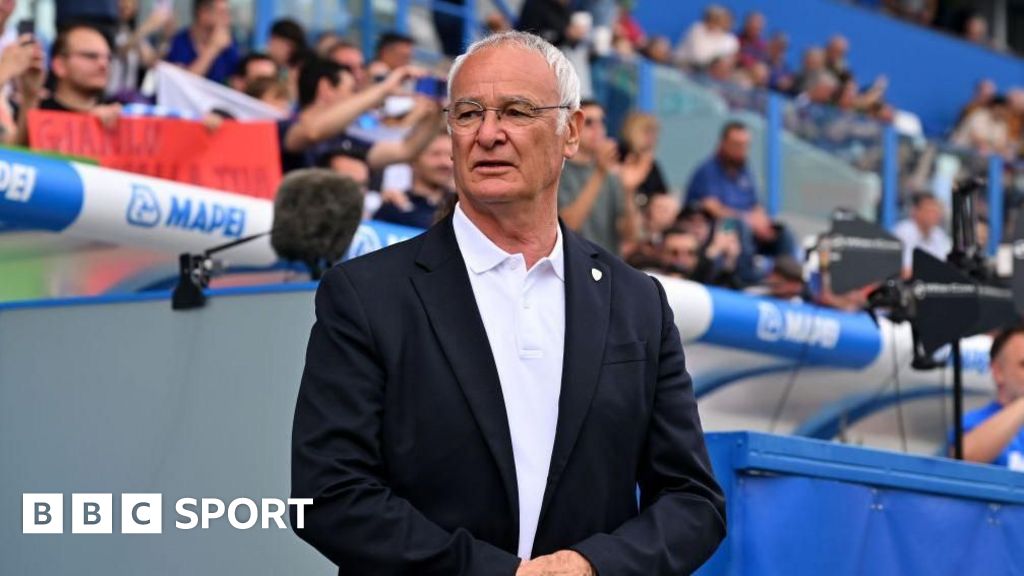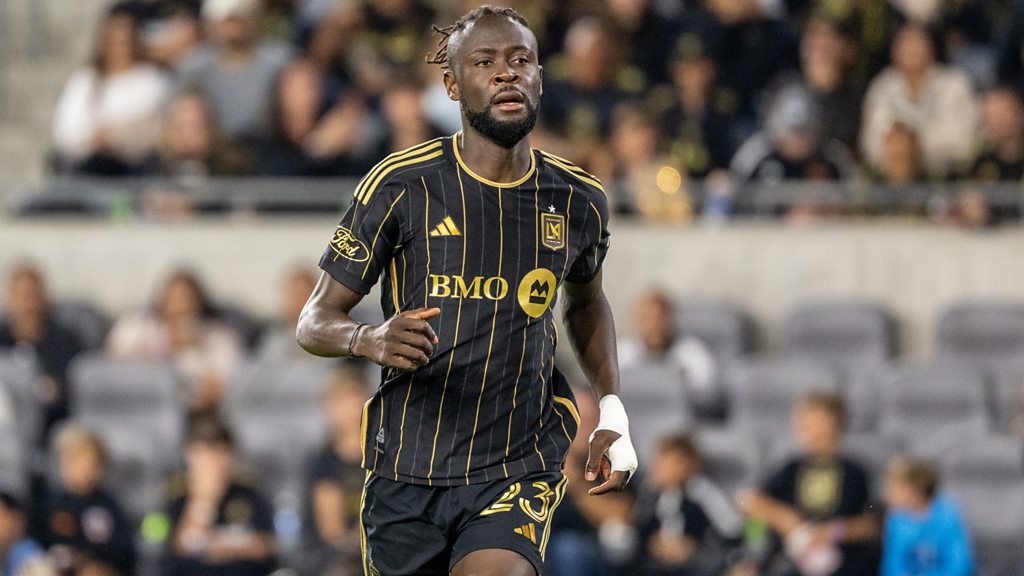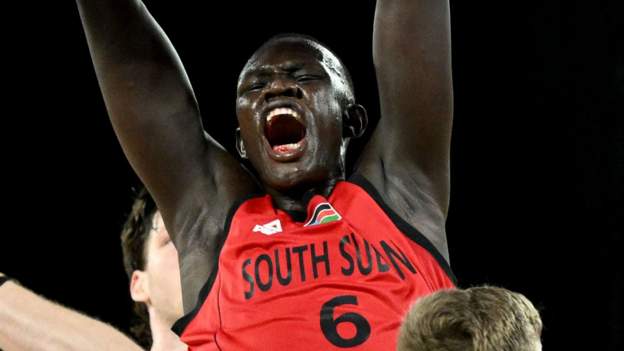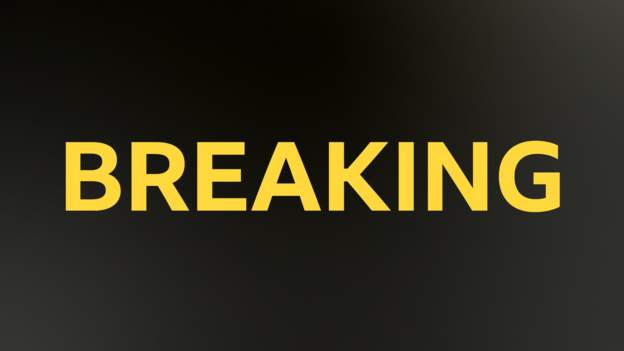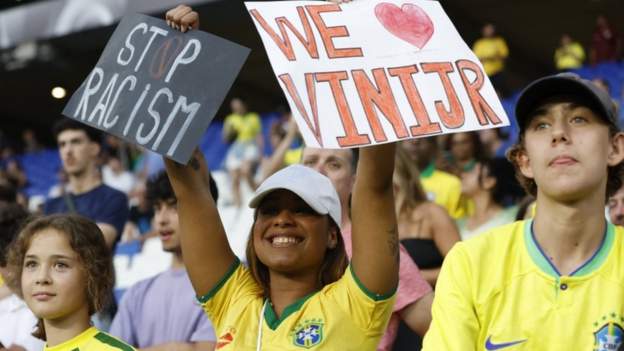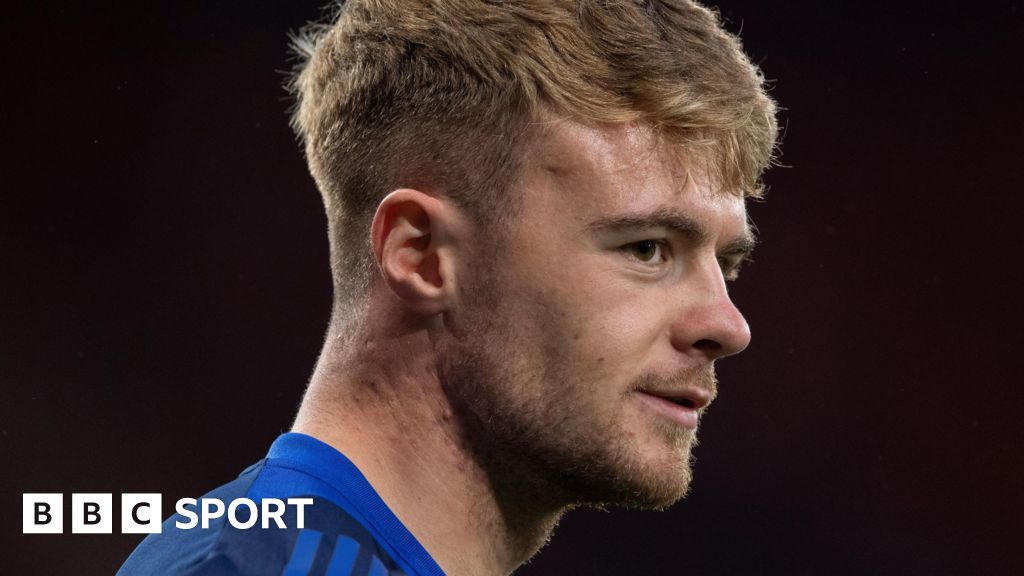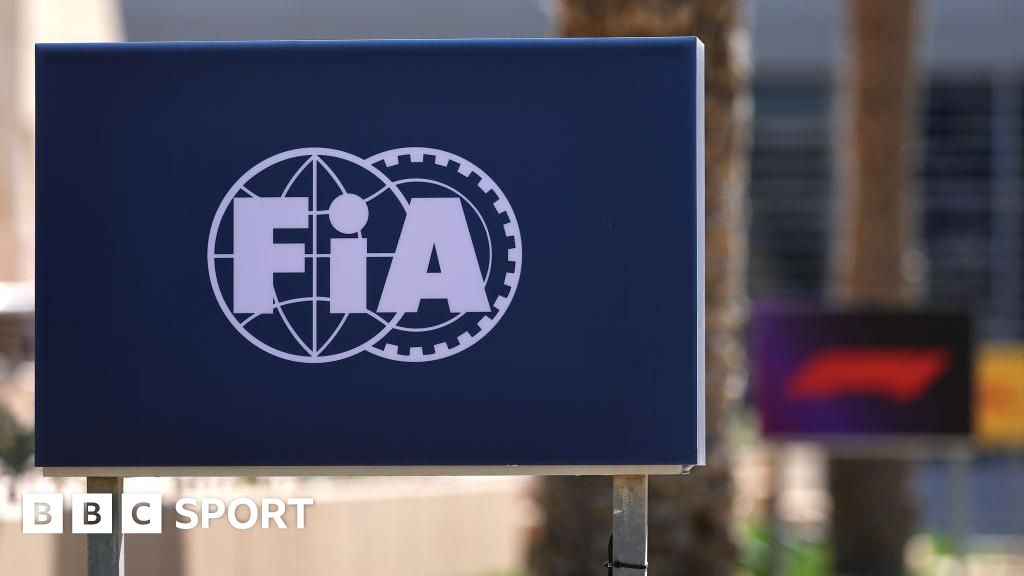The 2023 Basketball World Cup marks a momentous occasion in South Sudanese and Cape Verdean sporting history as both countries make their debuts at the tournament.
At 64th in the International Basketball Federation’s (Fiba) rankings, Cape Verde are the lowest-placed qualifiers. South Sudan are two spots above them, with Egypt the only other team outside of the top 50.
In the course of making history, though, neither nation will settle for making up the numbers. South Sudan were unbeaten in a first qualification campaign that made them heroes, while Cape Verde were AfroBasket semi-finalists and have one of the EuroLeague’s best players, Edy Tavares, among their ranks.
BBC Sport Africa takes a closer look at these newcomers’ remarkable stories.
‘I knew we would make it’
South Sudan’s sensational qualifying run concluded three years after the end of a six-year civil war that left 400,000 dead and displaced millions.
The world’s youngest nation gained independence in 2011 after more than 20 years of guerrilla warfare. Civil wars had taken place in Sudan between 1955 and 1972 and from 1983 until 2005.
Many citizens became refugees across the world, showing immense resilience to thrive despite the challenges posed by war at home and the difficulties they faced in new countries.
Sudanese basketball teams found their activity and success restricted by political unrest during the 1960s and 1970s, but Manute Bol – whose son would later play for the Oregon Ducks – became an icon as the first African player drafted by the NBA, joining the Washington Wizards in 1985.
Future two-time NBA All-Star Luol Deng was born that year. Deng left Sudan as a child and, after moving to the US via the UK, was ranked only behind LeBron James as a high school basketball player, proceeding to star for Chicago Bulls during the first ten years of his NBA career.
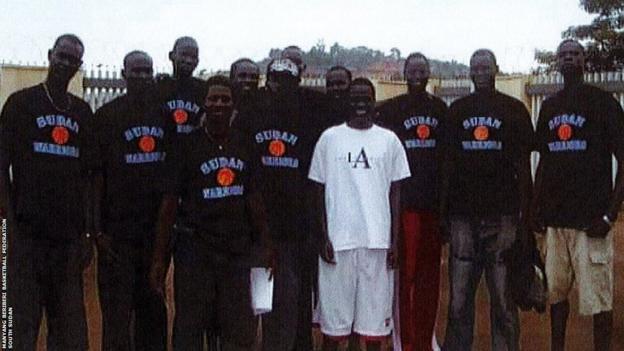
Inspired by Bol and Deng, players were flourishing in other countries but longed to represent South Sudan. One of them, Simon Mayen Malok, was a teenager living and playing in Kenya when he first contacted Fiba Africa officials in 2007.
“My motivation was to show the world what we can do in sport through basketball,” says Malok, who used his network to assemble a team for the continental under-18s tournament in Uganda in 2008.
“Being tall and very athletic people, we knew that with just a little concentration on this sport, we would be able to showcase our skills.
“From a young age I knew that, with good governance, we would not only make it to the World Cup but could be consistent competitors.”
The members of that squad also knew that independence was on the horizon.
Icons inspire new generation
Funding, communicating with players around the world and rigorous registration procedures were among the major challenges the early teams faced, says Malok, but their determination and perseverance – matched behind the scenes – kept them travelling and developing.
Two days after independence, South Sudan played their first international against Uganda in Juba.
Acuil Malith, who gave up his basketball ambitions to join the Sudan People’s Liberation Movement during the 1970s and 1980s, is one of the leaders to have helped the team go on to join tournaments such as the African Zone 5 qualifiers in Cairo in 2017, where Malok remembers the moving experience of seeing thousands of fans sing the country’s national anthem.
“As a son of one of the many liberators, many of whom who died for independence, it was a very emotional time,” says Malok. “I told myself that this is what they died for.
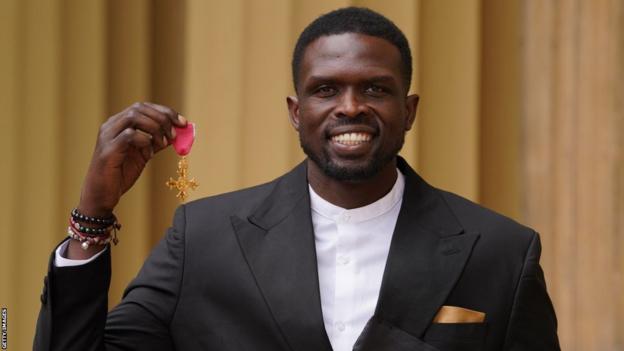
“Fiba Africa have a special connection with South Sudan. Our talent and passion opened their hearts and made them look forward to seeing a more prepared, better funded and international version of South Sudan basketball, which we are realising now.”
Under the leadership of Deng and his colleagues, the country’s basketball federation has taken the game to new heights.
Former international Sarah Chan, the lead scout in Africa for the Toronto Raptors who grew up as a refugee in Kenya, is an important mentor, and Malok says the vast majority of players have been scouted and developed by Manyang Beriberi at an academy in Australia, where a farewell dinner was held to send the team to the World Cup.
“It is an amazing feeling for the country,” says Malok. “The old guard are realising part of their dream. The youth are motivated by pride after being marginalised.
“Some have been refugees and foreigners for all of our lives and now we share the stage with the best in the world.
“It is also a great feeling to see such news about South Sudan in the mainstream media. The conflicts brought negative publicity, which affected our spirits for a while.
“This team’s success has motivated people to be more involved in sports. We now have academies locally that are full on a daily basis.”
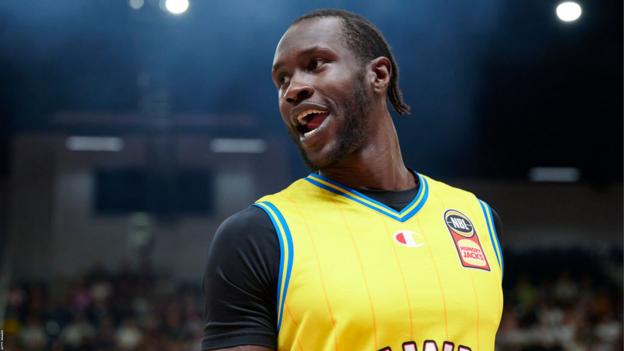
Malok names Bulls point guard Carlik Jones, New Zealand Breakers giant Mangok Mathiang, Wenyen Gabriel of the Los Angeles Lakers and Maine Celtics’ Marial Shayok as four players whose involvement has boosted squad morale.
“We are going to the World Cup not to participate but to compete,” he says. “We have a talented squad who are young and athletic.
“The commitment and passion they have shown is like nothing seen before. They are motivated and understand the assignment.
“The South Sudan basketball team will do its best and God will do the rest.”
- 26 August: South Sudan v Puerto Rico
- 28 August: South Sudan v China
- 30 August: South Sudan v Serbia
Cape Verde ‘on basketball map’
Emanuel Trovoada’s achievement was spectacular in guiding Cape Verde from 13 points behind to beat 2021 Afrobasket runners-up Ivory Coast and clinch qualification.
The coach of the smallest nation ever to play at the tournament then had a special request for the country’s leader, Ulisses Correia e Silva, at a government reception to celebrate the feat.
“He asked the prime minister to create the conditions for at least one journalist to accompany the team to the World Cup,” says Cape Verdean journalist Marcos Fonseca, explaining that although expectations are high among fans, players and staff, the wider population of less than 600,000 on the island is not strongly invested in their fortunes.
“The lack of involvement, for me, is due to the fact that we don’t have any reporting team following and informing society of what is going on.
“The excuse is always that the cost is high. Emanuel Trovoada felt this lack of coverage very much.”
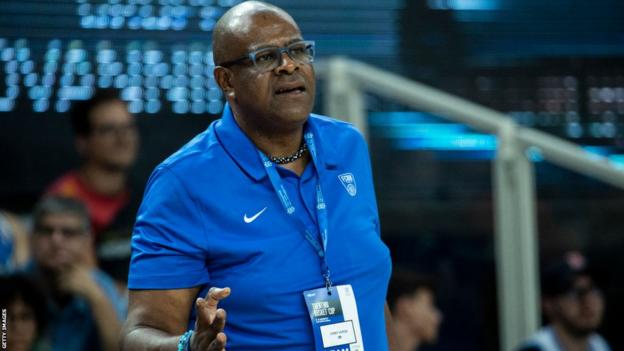
That could be about to change. “My expectation is that Cape Verde will win at least one match and not lose the others by many points,” predicts Fonseca, anticipating that Trovoada’s players will secure an unprecedented berth at the 2024 Olympic Games by going the furthest of any African team.
“We are a people used to fighting difficulties – our ability to overcome them can lead us to surprise.
“But for us, just being at the tournament is a big win. We are now on the world basketball map.
“In the absence of an investment plan to develop the game in the country, despite having many young talents, reaching the World Cup is already a big plus – regardless of results.
“I hope it serves to give visibility to athletes so that they can get better clubs and join more competitive championships, which will increase the competitiveness of the national side.”
- 26 August: Cape Verde v Georgia
- 28 August: Cape Verde v Venezuela
- 30 August: Cape Verde v Slovenia
Benfica’s Betinho Gomes brings experience, while “the world will be amazed” by his club team-mate Ivan Almeida, says Fonseca, who expects the speed of Angolan Basketball League shooting guard Anderson Gomes to also stand out.
Then there is EuroLeague Final Four Most Valuable Player Tavares, formerly of the NBA and now a two-time European champion with Real Madrid.
“Our defensive game will be one of our strengths because of his presence,” says Fonseca. “Let’s win the support of the world.”

